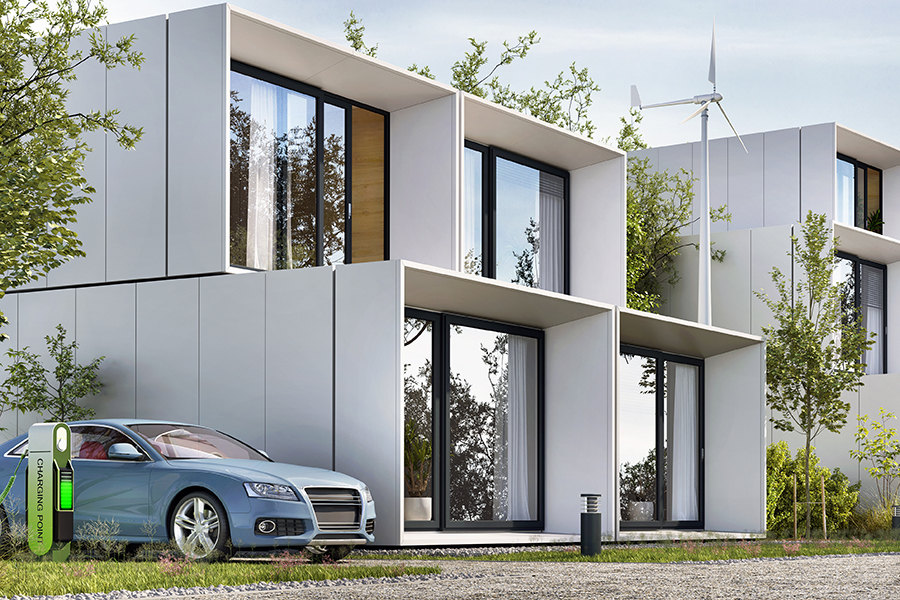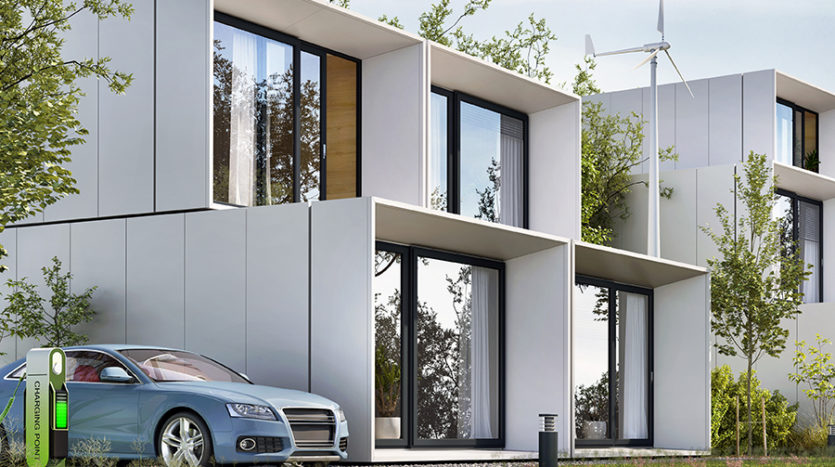Real Estate and Ecology: Key Developments for 2021
Construction and real estate are sectors at the centre of government action to reduce emissions of greenhouse gases. Following the entry into force in January of the Ma Prime Rénov scheme, which we have addressed in a previous topic, new initiatives seek to reduce the emissions generated by French housing. Zoom in on those agreed upon or in the midst of being decided at the beginning of 2021.
With the RE 2020 standard, gas heating is bowed out
Gas heating in new houses will be banned from next year. Thunderous news as we know that 75% of social housing and 21% of individual housing are already built with … in new houses. Boilers for coal. Biogas will be banned as well; it will be important to consider another energy source.
In the old one, the same energy could be used to replace a gas boiler. Fortunately, since the conversion of the whole heating system would have a cost many households could not afford.
When the construction permits submitted in the summer of 2021 come into effect, the measure nevertheless provides flexibility: the ban would only extend to collective housing in 2024. This leaves the ideal potential methods for the heating of these large surfaces for a period of time.
It should also be remembered that the RE 2020 standard incorporates the idea of the material life cycle, with bio-based materials (wood, hemp, cellulose, etc.) clearly in the spotlight. In order to regulate carbon content storage, limits would be set. Finally, it is important to properly conform the housing to the scorching weather.
A new DPE for the summer
The Ecological Change Ministry needed to make the diagnosis of energy efficiency (DPE) more accurate, transparent and enforceable! The energy usage of the house, with an estimation of the relevant energy bill, will now be suggested. In order to address certain injustices, greenhouse gas pollution would be taken into account more concretely. In fact, older, heavily emitting housing, although excessively polluting the environment, may historically benefit from an equivalent designation as modern housing because it did not require more electricity.
Fossil fuels such as coal or fuel oil will automatically be rated less desirable, although the scores will improve for wood-fired and electric heaters. Incorrectly, the DPE, as the other mandatory diagnoses, will be objectionable from 1 July 2021.
This latest, more efficient DPE would allow the national housing renovation programme to be handled better. The help can, in particular, be assigned with a clearer comprehension of the facts.
No more rental for thermal strainers

Homes that waste so much electricity will soon be simply barred from renting on the leasing side and in the aftermath of the previous steps. France has 2 million thermal strainers listed under the DPE groups F and G.
G-rated homes will no longer be leased as of 2023, but they reflect just 90,000 homes, or 4 percent of the target stock. The government aims to move smoothly, setting new approved thresholds in 2025 for a second stage (which is still being studied) until banning any of these dwellings for rent in 2028. This is enough to inspire owners to schedule real upgrades as quickly as possible.
Social housing is modernizing
A budget of EUR 500 million will be targeted to finance the energy rehabilitation of social housing this year and in 2022. Applications from HLM organisations must be forwarded to the relevant authorities before 1st June 2021.
The average subsidy amount allotted to these renovations is set at EUR 11 000 per dwelling and, depending on the scope of the intervention, may exceed EUR 20 000. The goal is to exclude these dwellings from categories F and G of the DPE, thus preventing the ban alluded to above.
A total of 40,000 upgraded housing units are expected by the government, half of them by 2021.
The RGE label is evolving
The certification ‘Recognized Guarantor of the Environment’ given to building firms under some circumstances enables households carrying out reconstruction work to benefit from government-imposed incentives.
Business audits would be more restrictive and strengthened by tests to identify theft and bad workmanship in order to improve this mark. In order for businesses to plan, audit grids are made available.
Furthermore, 19 regions, opposed to 12 previously, will be covered by the RGE certification. This helps the abilities required for an accomplishment to be more accurately tailored. For eg, the internal isolation and that exercised by the exterior would be separated.
A path that aims to become a European model in terms of energy efficiency in housing has been decidedly embraced in our region. For now, as a topic which appeared on capital.fr some time ago pointed out, we are very behind schedule. We can bet that real ecological change, but also economic and social progress, would allow all the initiatives put in place.



